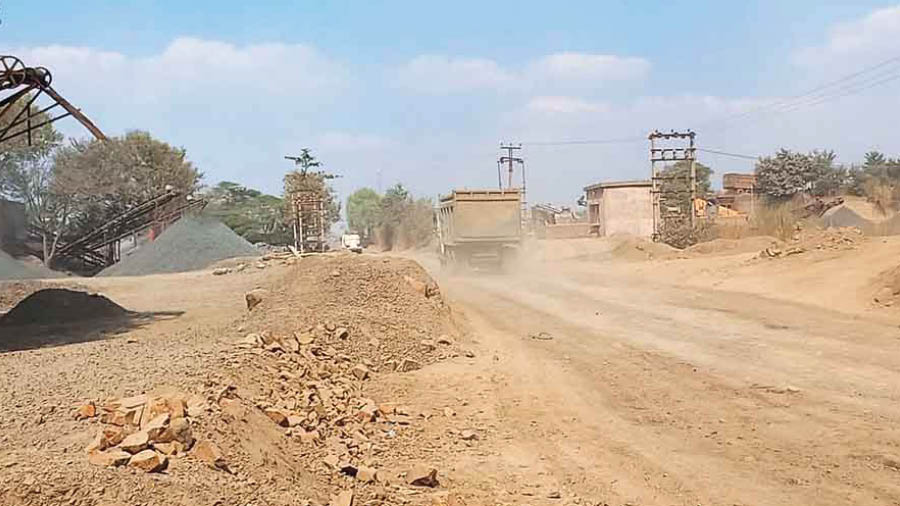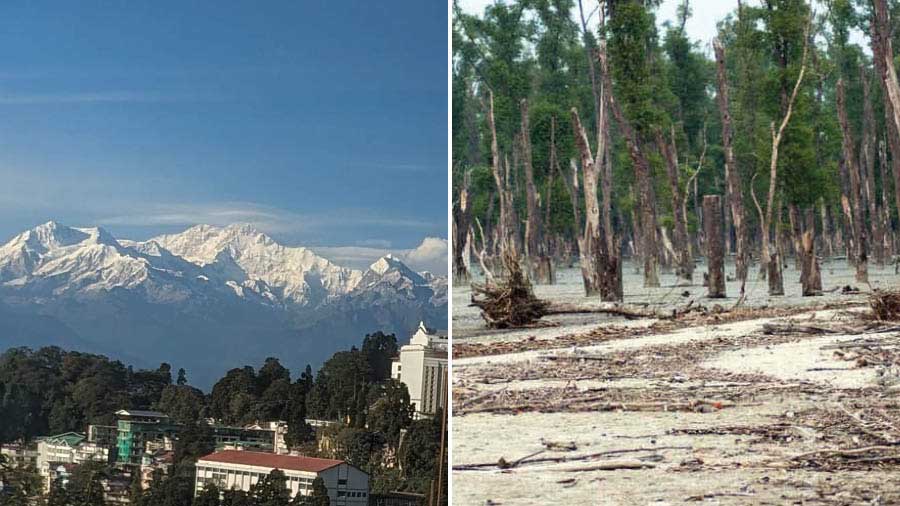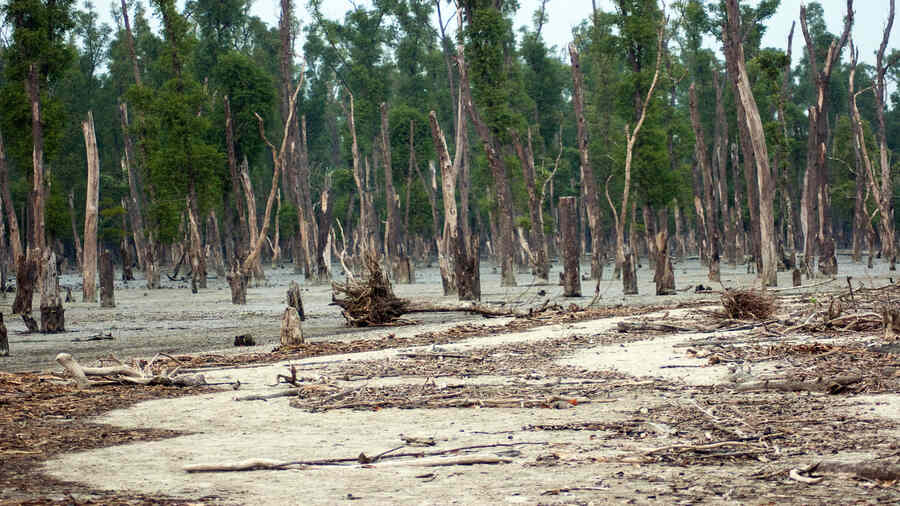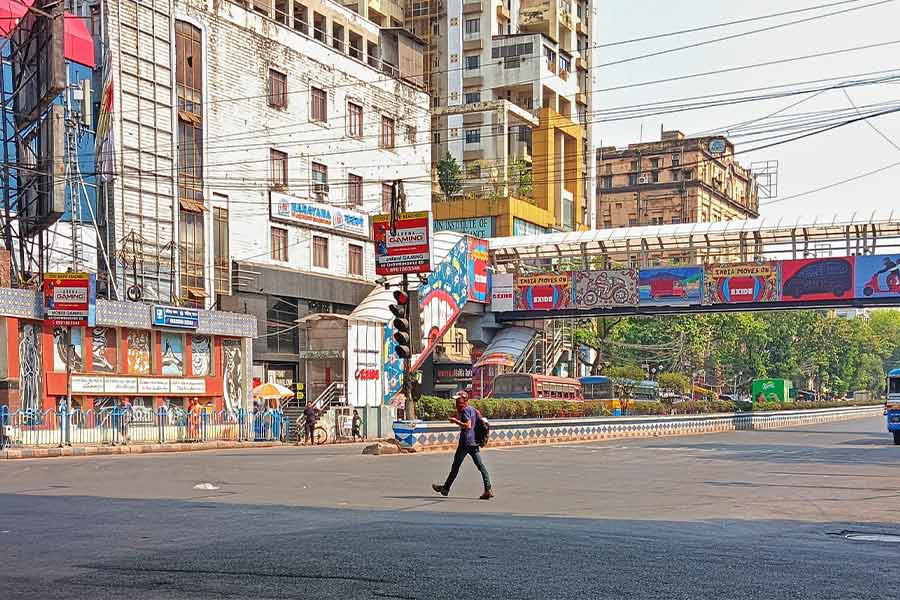India has no immediate plans to shelve coal extraction as it is linked to the developmental needs of millions — the Union government’s stand at the ongoing UN climate change summit (COP28) in Dubai brings good news for West Bengal, home to world’s second-largest coal block.
All countries at the climate summit, including India, did agree to a staggered phase-out of all coal and other fossil fuel but India will still have enough time to implement its already envisioned projects, including Deucha Pachami in Suri, Birbhum.
The successful implementation of the project, mining coals and basalt from Deucha-Pachami-Dewanganj-Harinsingha (DPDH) coal block — considered the largest coal block in Asia and the second-largest in the world — is significant for chief minister Mamata Banerjee in the run-up to the 2024 parliamentary elections.
“Though the project was cleared by the Union government in 2018; it only found momentum in mid-2021 once chief minister Mamata Banerjee threw her weight behind it,” said green activist Naba Dutta from Kolkata.
Land acquisition, initial scientific studies and environmental assessment work are in progress. “We will apply for environmental clearance soon,” a senior state government official said.
National statement has no reference to coal cut
While presenting the country’s national statement at the Dubai climate summit recently, India’s environment, forest and climate change minister Bhupender Yadav carefully refrained from mentioning the words “fossil fuel cut”, a term that has gradually turning out to be a major debating point at the summit, in the country’s 567-word-long national statement. But he showcased a series of initiatives to counter the allegation that the country was not doing enough to cut down emission from fossil fuel use.
“In our endeavour to decouple economic growth from greenhouse gas emissions, India has successfully reduced the emission intensity vis-à-vis its GDP by 33 per cent between 2005 and 2019, thus achieving the initial NDC target for 2030, 11 years ahead of the scheduled time,” said the minister in his address.
“India has also achieved 40 per cent of electric installed capacity through non-fossil fuel sources, nine years ahead of the target for 2030. Between 2017 and 2023, India has added around 100GW of installed electric capacity of which around 80 per cent is attributed to non-fossil fuel-based resources,” Yadav had further added.
The minister has also said that India has now finalised its third national communication based on greenhouse gas inventory of 2019 along with initial adaptation communication; and claimed that “it underscores our consistent contribution towards climate action while also prioritising the development and well-being of our people”. Incidentally, India’s NDC (nationally determined contributions), a submission regarding the country’s intended emission cut, mentions clear reliance on coal use alongside increasing the use of renewable energy.
Just before the COP 28 got underway, it came to surface that India aims to add 17 giga watts of coal-based power generation capacity in the next 16 months, its fastest pace in recent years, to avert outages owing to a record rise in power demand, according to government officials and documents. India is incidentally dependent on coal for 73 per cent of its power generation.
During the address, minister Yadav also referred to project LIFE and green credit, the pet projects of Prime Minister Modi, and urged the global leaders to consider them as part of global climate solution.
Consistent stand but could have been more forthright
“The stand is on expected lines and consistent with India’s position so far. Coal is the backbone of India’s energy economy and will continue to be so to ensure that there are no shocks to development ... rapid simultaneous expansion in renewable energy and energy efficiency will ensure the India continue to deliver on its climate ambition,” said Vaibhab Chaturvedi, a senior fellow of energy think tank CEEW.
“India is being cautious to not get caught in the trap being laid by developed countries to shift the burden on developing countries. There are efforts being made to push the coal phase-out only, which is the current primary source of energy security for developing countries. For a fair phase-out, developed countries should take the lead by committing to phase out oil and gas as well,” said Sanjay Vashist, director of civil society platform Climate Action Network South Asia (CANSA) to this reporter in Dubai.
“There is no point in avoiding the decision on phasing out fossil fuels, as it is a make-or-break issue at the Dubai COP. Instead, India must demand that developed countries shun oil and gas, not just push developing countries to phase out coal,” opined Harjeet Singh, the head of global political strategy at Climate Action Network International.
Experts point out that India is in a strong position on its climate action including emission as the recently released report on Climate Change Performance Index shows India is fourth best among the assessed countries, while the global carbon budget report points out that the emission growth from oil and gas taken together, in terms of percentage rise, has been around double to that of coal.
“Fossil fuel is not included under the Paris climate agreement, and hence cannot be debated,” a senior Indian official told this reporter last Saturday, but now the COP negotiation has the agenda as the pivotal point.








